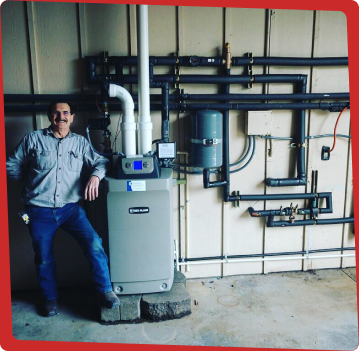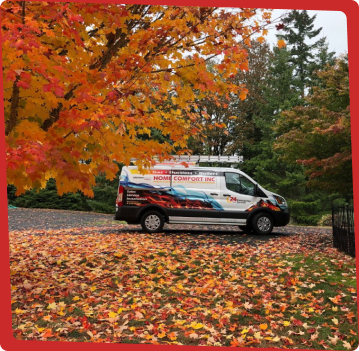The choices of boilers available for you can be overwhelming. If you don’t know where to start, give us a call, and we can help narrow your selection down to a boiler that makes sense to you.
- Electric boilers: the most efficient type of boiler due to not relying on gas or oil. This type of boiler has become quite popular in recent years. On top of being more efficient than other types of boilers, the installation of electric boilers also tends to be less expensive than others, and they typically run quieter than their non-electric counterparts. On the other hand, they can cost more to run, and if you have a power outage, you won’t have heat.
- Hot water boilers: these types of boilers use heat exchangers and pumps to distribute heat throughout your home.
- Steam boilers: similar to hot water boilers, these types of boilers also use a heat exchanger. While these are not very common nowadays, they still exist.
- Natural gas boilers: these types of boilers need to be connected to a natural gas line to have power. In rural and other areas without an easily accessible gas line, propane may be substituted.
- Oil boilers: Even though these boilers are technically water-based, they are fueled by oil and are common in rural areas.
- Condensing boilers: these types of boilers use two individual heat exchangers that heat both the outgoing and returning water. This method increases the energy efficiency of the boiler and aids in lowering your utility bills.

